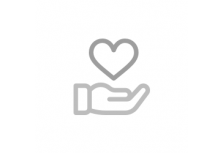During this global COVID-19 pandemic, CARE is on the ground in the world’s poorest communities to help them prepare for and fight this virus. As you can imagine, this pandemic threatens to overwhelm healthcare resources in countries with weak health infrastructures, as well as in refugee settlements, and CARE is there. We are building on our past experience responding to outbreaks of infectious diseases in vulnerable communities, and with the support of our generous donors we are saving lives with our immediate focus on the distribution of soap and hygiene items, increasing water supply, promoting hand-washing, and providing medical interventions.
Think of what we are told every day - to wash our hands and stay at home, and think of how scary it must be when you have the same fears as us but don't have access to soap or clean water, or don't have a safe home. Knowing the importance of physical distancing but living in a refugee camp, where personal space just isn't possible.
We are building on our experience in responding to outbreaks of infectious disease in vulnerable communities - taking particular note that emergencies, including health crises, tend to disproportionately affect women and girls.
CARE benefits from strong relationships with national and local authorities in the 100 countries where we work, longstanding community links, and decades of experience in health interventions.
CARE's emergency response will evolve as the pandemic evolves, and currently focuses on:
1) Community engagement: Building on our existing programming, CARE will provide guidance to the communities and partners we work with on risks, prevention, signs and symptoms;
2) Hygiene promotion: Promoting hand-washing including the provision of soap and hand-washing stations, conducting hand-washing demonstrations, and addressing barriers to good hand hygiene;
3) Water supply: we are working with communities to scale up safe water supplies;
4) Gender and protection: CARE will focus on protection for vulnerable populations, including women and girls, given the elevated risk of sexual and gender-based violence during emergencies;
5) Sexual and reproductive health and rights (SRHR): CARE is prioritizing the continuation of ongoing SRHR programming, which is often the first service to be cut in an emergency;
6) Psychosocial support: The emotional toll of a global health crisis cannot be underestimated. CARE will work to bolster the availability of resources, such as psychological first aid.
